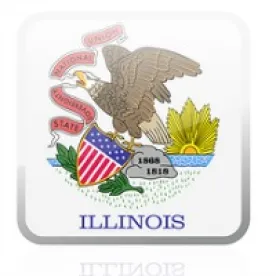Wilson Elser has reported extensively on the passage of the Illinois prejudgment interest statute, 735 ILCS 5/2-1303(c).
The statute took effect on July 1, 2021, and was quickly challenged on constitutional grounds in cases pending in the Circuit Court of Cook County. One of those cases – Cotton v. Coccaro, 2023 IL App (1st) 220788 – has reached the Appellate Court – First District, and that court has held the prejudgment interest statute is constitutional.
Cotton v. Coccaro
In Cotton, the plaintiff filed suit for medical malpractice, alleging that the defendant radiologist and others did not timely diagnose her breast cancer. The case proceeded to trial and the jury returned a verdict for the plaintiff in the amount of $6.528 million. The trial court entered judgment on the jury verdict, but denied plaintiff’s motion for prejudgment interest. The plaintiff filed a post-trial motion seeking an award of prejudgment interest; the briefing on this motion focused on the constitutionality of the prejudgment interest statute. The trial court granted plaintiff’s post-trial motion and modified the judgment to include prejudgment interest.
On appeal, the defendant contested the award of prejudgment interest on the ground that the prejudgment interest statute is unconstitutional. The appellate court affirmed the prejudgment interest award, concluding that the prejudgment interest statute is constitutional for the following principal reasons:
- The prejudgment interest statute does not impede on a defendant’s right to a jury trial by invading the jury’s province as the exclusive arbiter of factual issues, including the amount of damages to be awarded to a plaintiff. “Prejudgment interest,” the appellate court wrote, “is not a component of tort damages but a statutory additur applicable when legislatively defined conditions are satisfied,” and “the right to a jury trial does not attach to special or statutory remedies that did not exist at common law.” Cotton, ¶48 (citations omitted). “If a jury finds for a defendant on the issue of liability, the trial court never assesses prejudgment interest. Thus, the method by which the jury calculates damages remains unchanged. The jury decides the facts and awards money damages, but the jury has no role in awarding prejudgment interest. It is a ministerial function for the trial court, no different from awarding costs, imposing post-judgment interest, or setting the verdict, as in this case, to account for funds received from settling defendants.” Cotton, ¶49 (citations omitted).
- The prejudgment interest statute does not violate due process by providing a double recovery of damages for past medical expenses, lost wages, and pain and suffering. Instead, “[in] the prejudgment interest [statute], the General Assembly provides personal injury and wrongful death plaintiffs with an ancillary remedy long available to the plaintiffs in contract actions – compensation for the delay in being made whole. The prospect of prejudgment interest itself coupled with the express provisions related to a timely settlement offer seek to incentivize parties to settle their claims earlier in the legal process. Illinois courts have long recognized that promoting the settlement of claims is a legitimate governmental interest that the legislature may pursue through its police power.” Cotton, ¶54 (citation omitted).
- The prejudgment interest statute is not impermissible special legislation that distinguishes between personal injury and wrongful death of the plaintiff to the exclusion of other tort victims. “[T]he General Assembly’s objective in enacting the prejudgment interest [statute] is clear: to recompense tort plaintiffs for the time value of money and to incentivize the settlement of claims. Ensuring a more complete recovery, promoting settlement and easing the burden on crowded court dockets are each legitimate legislative goals. And personal injury and wrongful death claims make up a significant portion of the case types creating a backlog on the civil docket in Illinois courts. The General Assembly could quite reasonably focus its reform efforts on these cases to the exclusion of other tort cases. A legislature need not choose the most comprehensive reform and often does elect to enact measures in a piecemeal fashion.” Cotton, ¶61 (citations omitted).
Conclusion
It is anticipated that the defendant in Cotton will seek Illinois Supreme Court review of the appellate court’s prejudgment interest ruling. That said, we continue to recommend that defendants file motions challenging the statute’s validity in their individual cases in order to preserve the issue for appellate review. These motions should acknowledge that trial judges have a stare decisis obligation to follow the appellate court’s decision in Cotton, but argue that the constitutionality of the prejudgment interest statute is expected to be reviewed by the Illinois Supreme Court in this or another case, therefore it is raised for preservation purposes before the trial court.


 />i
/>i

